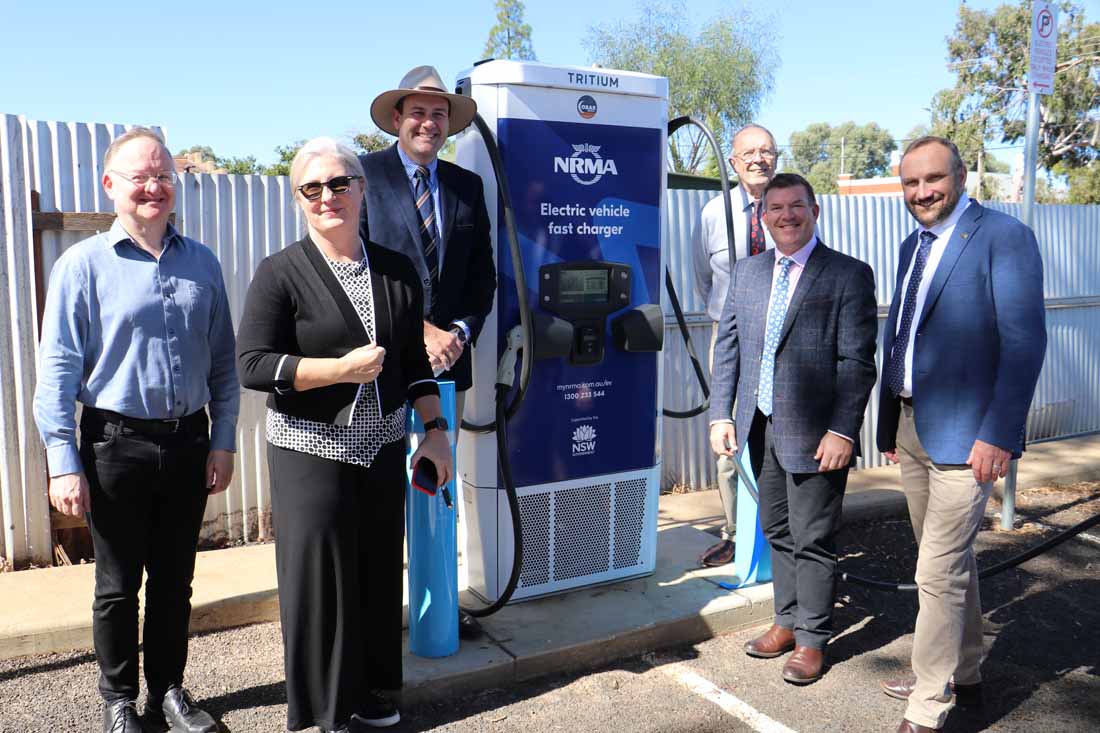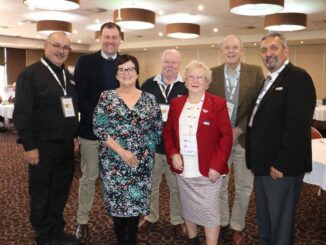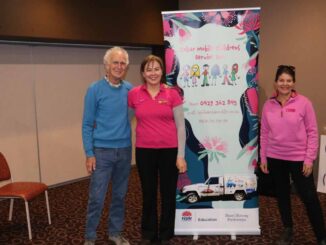
Electric vehicles (EVs) are becoming more popular on our roads with the NSW Government forecasting EV sales will increase to more than 50 per cent of all new passenger vehicles by 2031.
To prepare councils for the upcoming EV transition in their region, the NSW Sustainable Councils program is supporting them to identify and assess local sites for charging suitability.
Cobar Shire Council’s director of engineering Heinz Kausche presented an Electric Vehicle Charging Feasibility Assessment for Cobar report to last week’s December Ordinary Council Meeting.
Prepared by Chargeworks P/L, the assessment looks at suitable council owned destination charging sites for electric vehicles along with options for leasing car spaces for fast charging providers.
Mr Kausche said this engagement also extends to assisting Councils with destination charging grant applications.
“Sustainable Councils Program is a partnering arrangement with regional councils and Joint Organisations to identify, plan and implement investment-ready energy and resource-saving initiatives,” Mr Kausche advised.
“The report identified that all electric vehicles travelling through Cobar currently rely on a single fast charger located in the Bloomfield Street Carpark and that this infrastructure will quickly become insufficient as the adoption of electric vehicles increases.”
Noting the limited availability of electric vehicle charging stations in Cobar, Chargeworks made the following recommendations:
That Council submit an expression of interest to host additional fast charging providers in the Bloomfield Street Carpark and strongly encourage local accommodation providers and businesses in Cobar to consider applying for grant funding.
The report found that installing charging units at motels would be the most convenient charging solution for EV drivers staying in Cobar.
The assessment also suggested Council may also assist private businesses by engaging an electrician to provide quotations or provide additional grant funding.
It recommended investing in destination charging infrastructure in up to three locations so that tourists, and locals, may charge their electric vehicles while visiting a range of shops, restaurants and attractions.
Mr Kausche advised grant funding is available to councils and businesses for electric vehicle destination charging stations.
“However, it should be noted, if successful in securing funding, this funding doesn’t cover the full cost of installation or the ongoing maintenance and operation of the charging infrastructure,” he said.
Mr Kausche’s report recommended council: negotiate with providers for the installation and operation of additional fast chargers in the Bloomfield Carpark; encourages and supports local accommodation providers and businesses to apply for grant funding to install charging solutions for electric vehicle drivers visiting Cobar; not progress with the assessment’s recommendation of installing destination chargers at Drummond Park and the Cobar Museum and Visitor Information Centre.
Cr Julie Payne said she agreed with the recommendations of Mr Kausche’s report.
“I don’t agree that council should have any expense attached to electric vehicle charging stations,” Cr Payne said.
She said Local Government “has enough on their plate now” and the associated costs should be met by either the State or Federal governments.
She said according to the report, the maintenance costs “comes to a rather large sum over time, and it’s not going to stop”.
“Saying that locals may use these, well I don’t believe that locals in a small town have any reason to use public charging stations.
“If you’ve got an EV, then you’ve no doubt got a set up at home,” Cr Payne reasoned.
Cr Jarrod Marsden also commented on the report.
“As part of this feasibility study, I’d like to see whether our [electricity supply] grid could actually handle it,” he said.
The report outlines a number of benefits of having EV destination charging including: attracting new visitors, provides an enhanced visitor experience, makes for improved travel planning, may extend the length of a visit, and helps to promote Cobar as a destination.
The full assessment report can be found on Council’s website.


